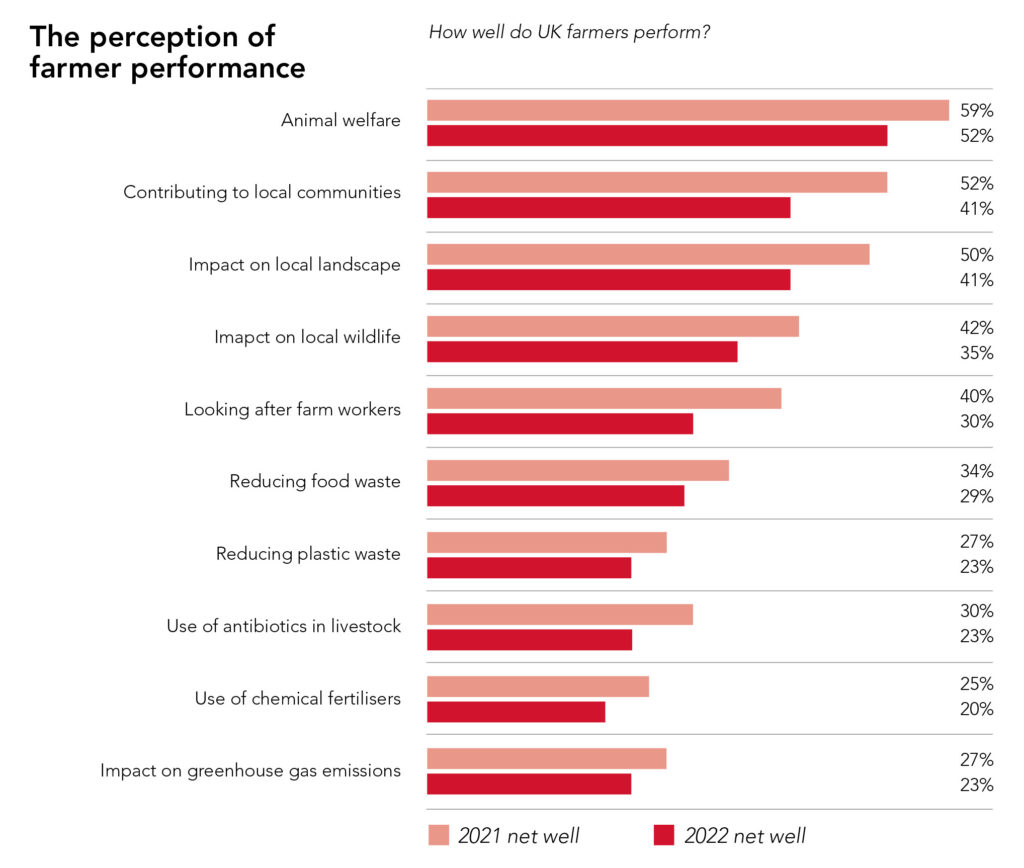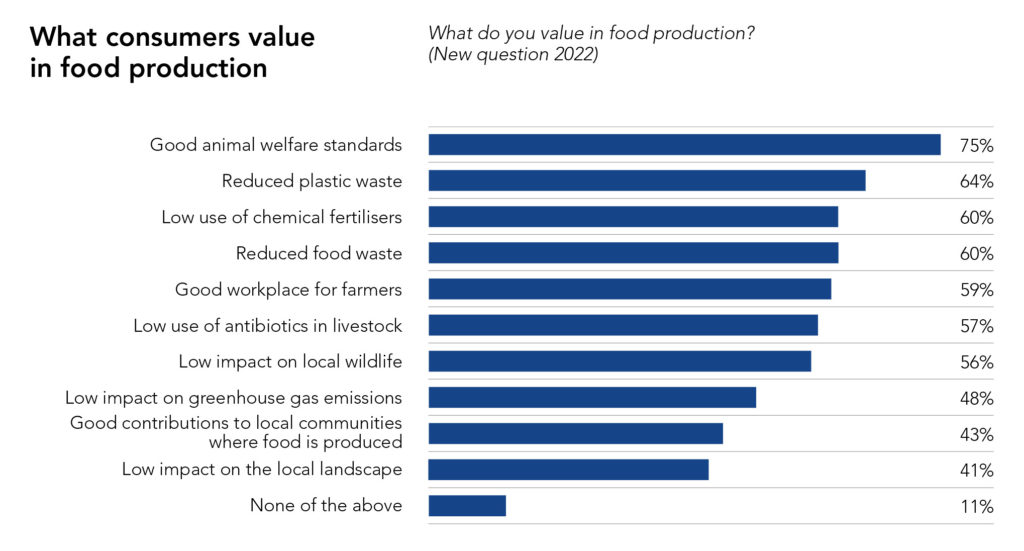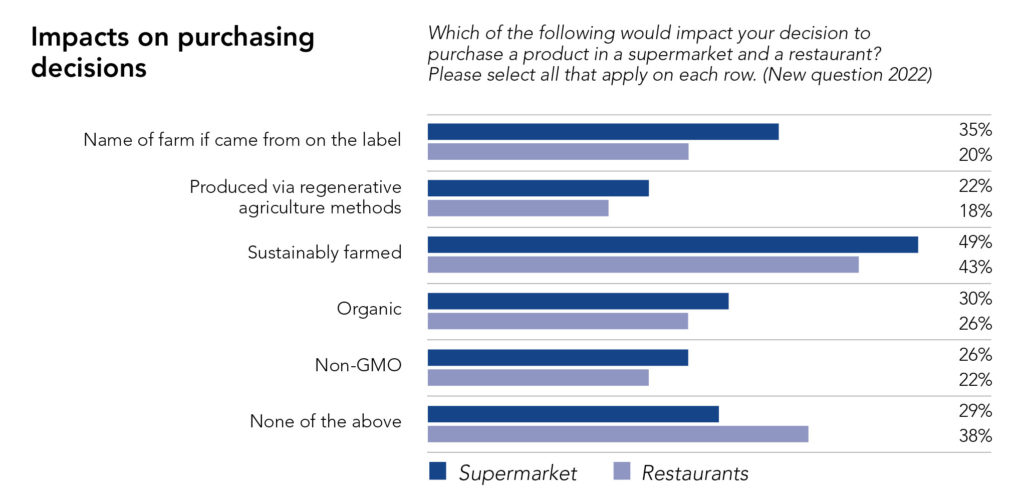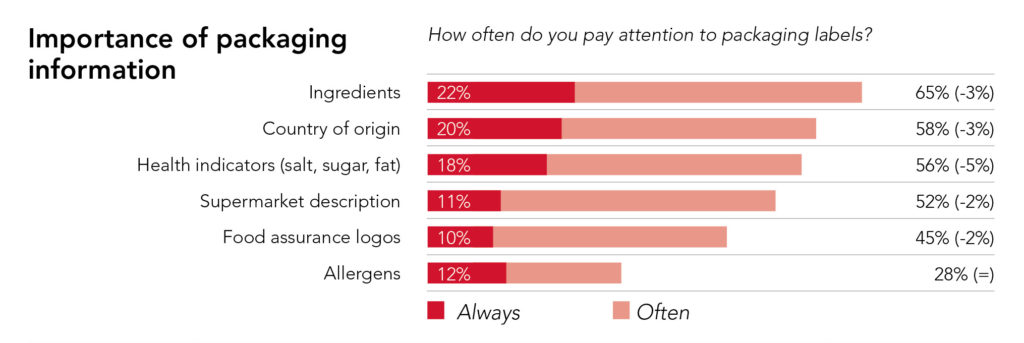Farmers remain well trusted but there are challenges around performance
Overall, trust in the role of farmers in the food system remains high (77 per cent), but it has declined over the past nine months on every single metric that consumers were asked about. Just over half of people (52 per cent) think that farmers are performing well on animal welfare, compared to 59 per cent last year.
Consumers also perceive that the impact farmers have on the local landscape and wildlife has worsened and that they are not performing well on issues around food and plastic waste.
This data suggests a lack of awareness about the measures in place across British farming to ensure standards through inspection and assurance schemes, which covers these areas of production and ensures compliance

75 per cent of people value good animal welfare standards in the production of the food they buy. However, while shoppers do look to good standards, the specific standards applied to British produce is not necessarily understood by consumers beyond the most recognisable labels such as Free Range and Organic.
Sustainability is also another important factor for consumers when thinking about trust in food. 64 per cent of people value a reduction in plastic waste in their food production and sale, whilst 60 per cent of people value low use of fertilisers, and just under half value a low impact on greenhouse gas emissions.

Consumers pay close attention to certain information on packaging. 58 per cent of consumers look at the country of origin while 35 per cent of consumers said having the name of the farm on the label would have an impact. 52 per cent of customers consider the range it comes from (such as Tesco Finest or Sainsbury’s Taste the Difference), and nearly half of consumers often or always look for a food assurance logo.

Labelling a product as sustainably farmed also has a big influence, with half of shoppers saying it would have a positive impact on their decision to purchase. 30 per cent said something being labelled organic would make a difference to their decisions as well.
